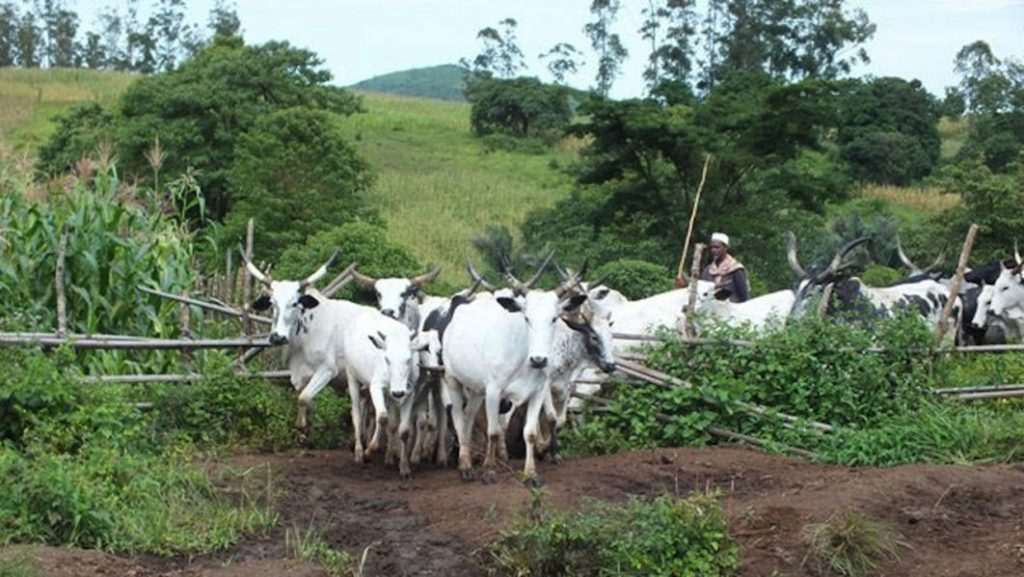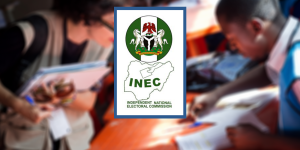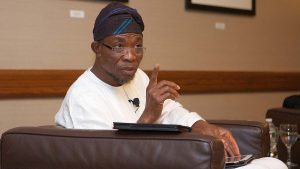HERDERS-FARMERS NEED IMF’S FRESH LIFELINE FOR NIGERIA

IMF fresh lifeline could provide the much needed solution for herders-farmers crisis in the struggle over grazing land and scarce resources which have over the years resulted in perennial and growing violent conflicts in terms of frequency, intensity and geographic scope. Let IMF fresh lifeline captures herders-farmers crisis.
I am appeal to President Buhari to use the fresh IMF lifeline to finance private ranches most especially in southern Nigeria. This will reduce the tension between farmers and herders. The fresh IMF lifeline should be directed mostly to address herders-farmers crisis.
I want to appeal to IMF to spend the fresh lifeline for Nigeria to resolve herders-farmers crisis. The fresh lifeline should be used to address the problem of water which is part of the crisis between farmers and herders. For Nigeria, the facility will hopefully go a long way to grow the economy if adequately deployed to address the problem of water which is the main cause of farmers-herders crisis. The amount will be credited to member countries in proportion to their existing quota in the global financial agency. IMF fresh lifeline should be used to provide water for herders and farmers. The lifeline should support Federal and state authorities that are working with donors and investors and communicating the Plan’s benefits to herders and farmers. IMF’s fresh lifeline should be solely deployed to address the problem of water between farmers-herders in Nigeria.
IMF’s fresh lifeline for Nigeria could be the solution to herders-farmers violent clashes in Nigeria which has remained elusive due to lack of consensus, especially between the Federal Government of Nigeria and which affected north-central and southern states’ Governments, regarding the right methodology for curbing the menace. IMF’s fresh lifeline could support ranches that have been proposed by the Federal Government of Nigeria. With the support of IMF, ranches could be piloted in some affected states to be able to appraise its real potentials rather than totally rejecting it without subjecting it to any form of experimentation.
The facility coming at this time when herders-farmers clashes is high in Nigeria and many countries’ economies have been upended by the pandemic, should be seen as a good opportunity for countries to reset their economies. Therefore, prudent management of the fund is of great essence.
I call on the policymakers to design economic recovery plans that will address farmers-herders crisis and stimulate growth rather than always looking for lifeline from financial institutions such as IMF and the World Bank. For instance, in April last year, Nigeria collected $3.4 billion, equivalent of its quota under the IMF’s Rapid Financial Instrument (RFI) to tackle the funding gaps created by COVID-19 pandemic following the drastic drop in the prices of crude oil in the international market. Government can use the lifeline to revamp the comatose healthcare sector, education and further development of Small and Medium Enterprises (SMEs).
Also last year, Nigeria benefited from the IMF $1billion fund raising exercise under what it called “Catasrophe Containment Relief Trust (CCRF). The World Bank President, David Malpass, also formulated a debt relief, and urged the G-20 developed nations to suspend all repayments of official bilateral credit due to the pandemic. For Nigeria, that was a great relief.
It also helped her to resolve some of the country’s national debt, currently put at over N34 trillion. Over N3.5 trillion is budgeted for debt servicing in the 2021 budget. It is worth reminding the government that the SDR is an opportunity to calibrate the economy and set it on the path of recovery and sustainable development.
Therefore, the SDR should be channelled to areas of greatest need that will boost economic growth and development. The money, which should not be seen as a windfall, must be judiciously utilised.
The approval of $650 billion general allocation of Special Drawing Rights (SDRs) by the Board of Governors of the International Monetary Fund (IMF) to boost global liquidity is highly welcome. The allocation of the SDRs takes effect from August 23, 2021. Nigeria, one of the beneficiaries of the facility, will get $3.5billion from the total allocation. The lifeline will enable the recipient countries tackle the effects of the COVID-19 pandemic, now in its third wave.
Announcing the SDRs allocation, IMF Managing Director, Ms. Kristalina Georgieva, said the interest-free loan was the largest allocation in the history of the organisation. She described it as a “short in the arm for the global economy at a time of unprecedented crises.” Underscoring its significance, the IMF boss said, the SDR allocation “will benefit all members, address the long-term global need for reserves, build confidence, and foster the resilience and stability of the global economy”. Beyond that, the facility will help most vulnerable countries struggling with the impact of COVID-19 induced crisis.
In 2019, Nigerian authorities launched a ten-year National Livestock Transformation Plan to curtail the movement of cattle, boost livestock production and quell the country’s lethal herder-farmer conflict. But inadequate political leadership, delays, funding uncertainties and a lack of expertise could derail the project. COVID-19 has exacerbated the challenges.
Violence fuelled by environmental degradation and competition over land has aggravated long-running tensions in the country’s northern and central regions. A surge in bloodshed in 2018 prompted Nigeria’s federal government to formulate a far-reaching set of reforms for the livestock sector.
The new Plan represents Nigeria’s most comprehensive strategy yet to encourage pastoralists to switch to ranching and other sedentary livestock production systems. Modernising the livestock sector is key to resolving the herder-farmer conflict, which threatens Nigeria’s political stability and food security.
Tackling these challenges requires a concerted effort by IMF, federal and state authorities, with help from donors and investors. First, Abuja and supportive state governments should provide stronger political leadership and improve public communication to dispel misgivings and misperceptions about the Plan. These are especially prevalent among pastoralists, who will be asked to change a centuries-old nomadic lifestyle, and who legitimately doubt the Plan’s promises about available pasture. But many farmers are fearful, too, worrying that they may lose land to livestock producers. Many in the Middle Belt and southern states remain deeply suspicious of the Plan’s long-term goals, which they see as creating privileges for herders and more broadly the Fulani.
Inwalomhe Donald writes from Abuja via inwalomhe.donald@yahoo.com
![]()



